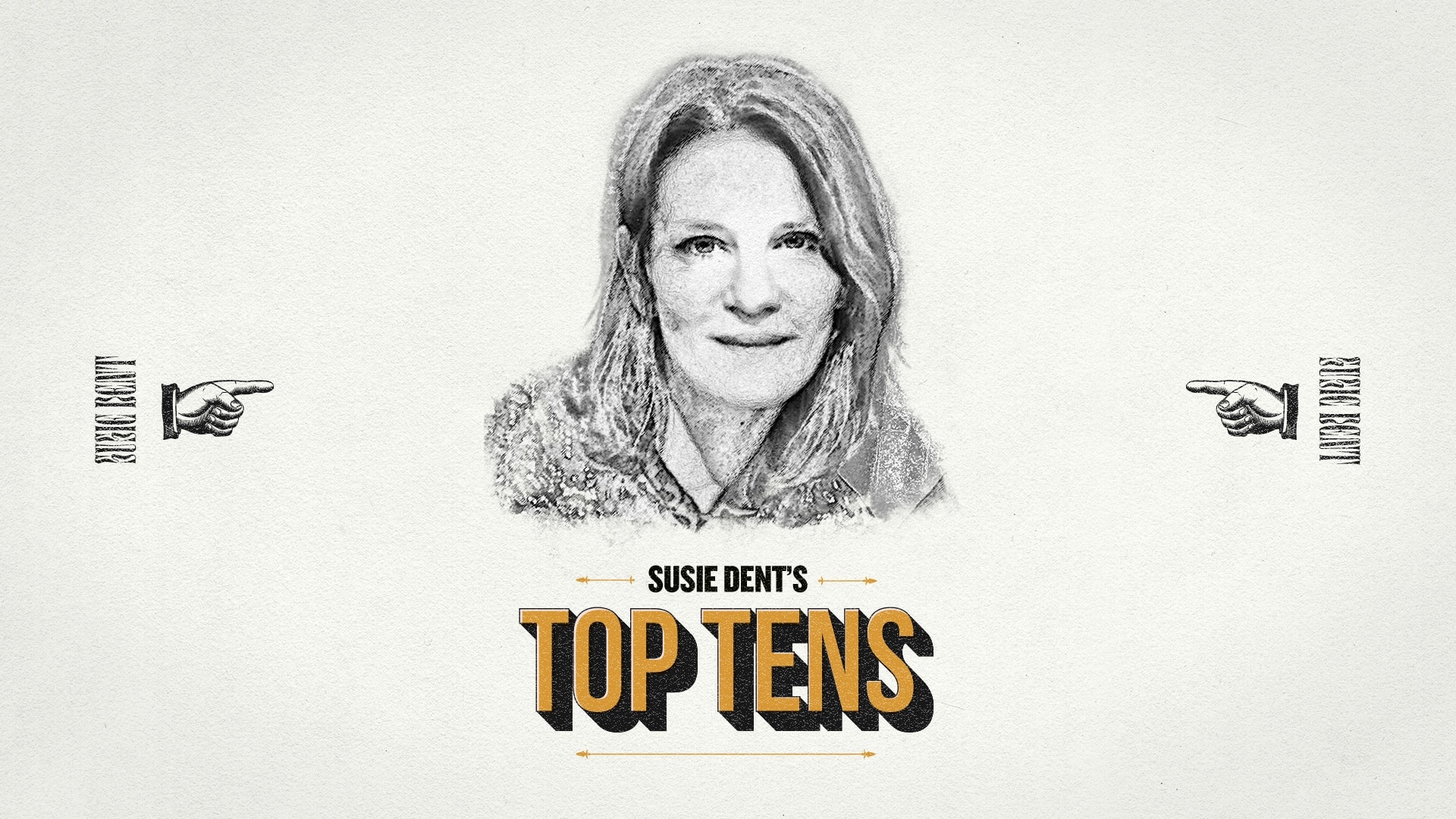
Susie Dent has no need to remind anyone there’s little to celebrate at the moment. Which makes little pockets of refuge all the more important, especially those that make her smile.
For me, unsurprisingly, that refuge comes in the form of a dictionary. Within its pages, virtual or otherwise, lie thousands of unexpected smiles and even the occasional boffola (aka a guffaw). So this week’s top ten gathers some of the curiosities in the dictionary, in the hope that it might admit a little light into the proceedings:
arsefoot
Once you know that 18th-century sailors gave penguins the alternative name of ‘arse-feet’, a term originally applied to the great crested grebe, you may never use the proper term again. It perfectly describes the waddling bird whose diminutive legs are set far back on its body. (Just don’t ask whether penguins have knees).
bumbershoot
For some, it’s an umbrella, for some a bumberella, but for others, it was once a bumbershoot. This humorous riff on ‘umbrella’ and ‘parachute’ was coined in the US in the late 1800s and was picked up in Britain a few decades later.
cacklefart
What better way to start the day than with a cacklefart or two? I’m speaking here not about a trip to the Spice Islands (a 19th-century euphemism for the toilet), but about the humble egg, also known in early 20th-century English dialect as ‘cackleberries’.
bags of mystery
To go with those eggs you might like some bags of mystery, a Victorian nickname for sausages, because – of course – you never quite know what’s in them.

A frying pan filled with cacklefarts and bags of mystery
pigsney
The history of endearments is packed with terms that to modern ears sound positively ridiculous, among them ‘bagpudding’, ‘cabbage’, ‘prawn’, ‘creep-mouse’, and ‘ding-ding’. A favourite sweet nothing in the 14th century was ‘pigsney’: a term of address for an especially cherished girl or woman, which literally means ‘pigs eye’. Tread carefully with this one if you fancy trying it out.
Neopolitan bone-ache
Syphilis was a particular taboo in the fifteenth century. Believed to have been caused by moral depravity, it was given a host of euphemistic names, including Cupid’s measles, French marbles, and, by Shakespeare, Neapolitan boneache. These last two demonstrate how each nation blamed it on another: the Italians called syphilis Morbus Gallus (the French disease), causing the French to retaliate with mal de Naples. One other name for it, meanwhile, was the curious and fairly icky ‘grandgore’.
nod-crafty
Remember lockdown Zoom meetings which had us staring at boxed faces on screens for hours on end? It’s a fair bet that many of us became nod-crafty, if only we knew it. This glorious 17th-century word is defined in the Oxford English Dictionary as ‘given to nodding the head with an air of great wisdom’ – perfect for the person who pretends to understand everything that’s being said when they actually tuned out hours ago.
shot-clog
All of us who like visiting fuddle-caps’ hall (the pub) might shamefully admit to knowing a shot-clog or two. This 400-year-old expression means a fool or bore who is only tolerated because they are buying the next round.
corsned
In Old English law, an accused person’s guilt or innocence might be decided by seeing whether they were able to swallow a large piece of mouldy (and exorcised) bread. To be fair, it sounds a lot easier than medieval ordeals of being tied up and thrown into a pond to see if the accused would float.
taghairm
Never let it be said that our vocabulary lacks precision. The ‘taghairm’ is actually Scots and defines the act of foretelling the future by lying in a bullock’s hide behind a waterfall. Perhaps it’s one to keep up our sleeves at the toughest of times.
Want to hear more from Susie about the infinitely bizarre and fascinating world of language? She’s speaking to the top brass of British comedy and entertainment about just that, and it’s all free to listen to here on whynow.




